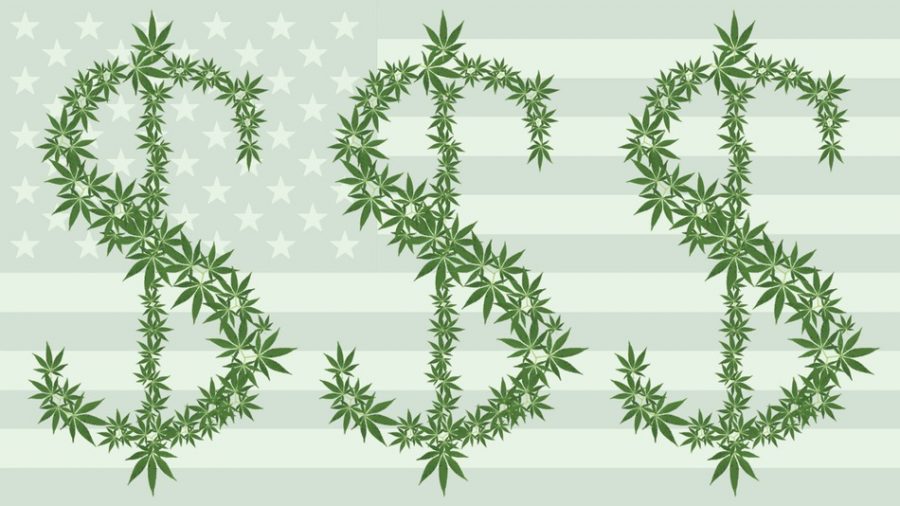U.S. cannabis industry hits $17.5 billion milestone as consumption hits a new record
While some industries have sunk under the weight of the coronavirus pandemic, others have gone from strength-to-strength. In particular, the cannabis industry has been floating on cloud nine amid the health crisis, as recently proven by BDSA analysts.
BDSA, a cannabis sales data platform, has released new revenue insights for the U.S. cannabis industry. Based on the firm’s latest report, sales hit a record $17.5 billion last year. This figure demonstrates 46 percent growth from 2019.
What’s even more exciting is the fact that sales could hit a new high this year, with more states having now legalized the plant — 14 states allow adult-use cannabis and 36 allow for medical.
A significant portion of sales spikes have come from adult-use markets. In particular, well-established markets like Colorado have seen their sales inflate 26 percent to $2.2 billion. Oregon was also noted as a cannabis-friendly state with major sales increases — BDSA analysts noting that sales grew 29 percent over 2019 to $1.1 billion.
In Illinois, where adult-use sales were recently introduced on top of the state’s already-thriving medical cannabis market, gains rose by $784 million. Fast-forward to now, and the market is already generating more than $1 billion in sales.
Over in California, sales jumped $586 million, whereas Florida experienced sales growth of $473 million.
“We expected more potential impact from an economic downturn, but the industry has proven to be resilient. It’s potentially recession-proof,” says Kelly Nielsen, who is in charge of running the data company’s insights and analytics department.
Three primary factors believed to have stimulated U.S. cannabis industry growth
It’s not just the COVID-19 pandemic that pushed the cannabis industry to new heights last year but also, the fact that new adult-use markets were established in states such as Arizona and Illinois. Nielsen says that a flurry of new customers also ventured into well-established cannabis markets, including California, Colorado and Oregon.
She goes on to say that the industry’s growth is likely being stimulated by the fact that cannabis consumption is reaching an all-time high. Approximately 30 percent of consumers who partook in the BDSA survey said that they are now seeking out cannabis products more frequently, while an additional 25 percent said their cannabis consumption habits have surged since before the virus first broke out.
After close analysis of all legal cannabis markets in the U.S, BDSA researchers discovered that more people were consuming the plant at the end of 2020 than they were six months before. Furthermore, residents living in legal recreational cannabis states started using more weed during the research period — consumption rose from 38 percent to 43 percent.
“Close to 50 percent market penetration is really compelling, as alcohol penetration is around 60 percent,” says Nielsen, who noted that market penetration climbed from 37 percent to 39 percent in California.
The bulk of the U.S. cannabis industry is still in the black market
Every year, illicit cannabis sales harvest over $100 billion. Although the legal market has a long way to go, it’s safe to say that it is on-track to surpass the illegal market in the near future. In fact, BDSA foresees the legal U.S. cannabis market generating $41 billion on an annual basis, which would put it on-par with the craft beer industry.
The coronavirus pandemic appears to have stimulated cannabis delivery services, too. BDSA reported a 25 percent increase in this segment in 2020 — a year that saw most Americans face government-imposed social distancing restrictions in an attempt to stop the virus spreading.
A prime example of this is Sava, which is a cannabis delivery platform serving 70 different cities in the San Francisco area.
“We saw 60 percent growth in sales in 2020. It’s an exceptional number and it was a particular year,” says founder and CEO of the company, Andrea Brooks. “Now it’s about holding on to the consumers and continuing to grow.”
Brooks attributes her company’s sales growth to the stay-at-home orders imposed during the coronavirus pandemic. In addition to this, she says that a growing number of consumers are crossing over from the black market.
“Legalization isn’t like turning on a switch,” says Brooks. “It’s ongoing and people become more comfortable with it as the market matures.”










